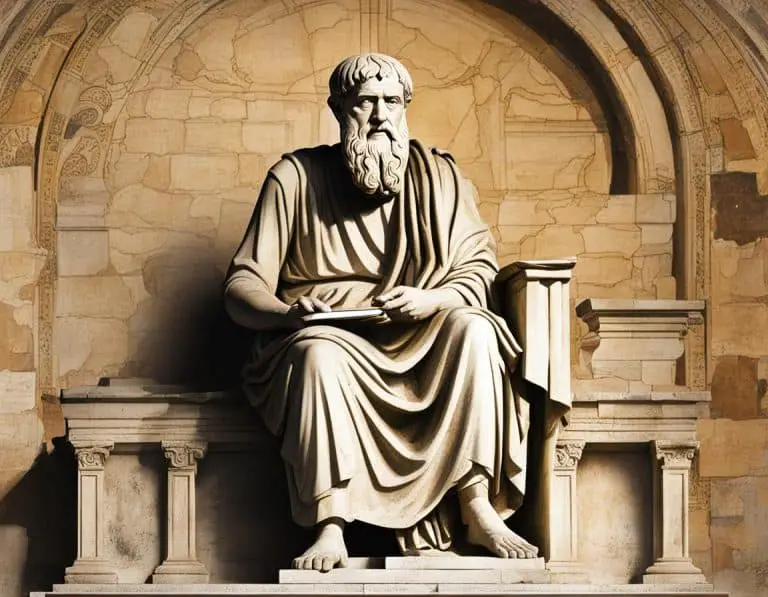Plato’s Views on Morality and Ethics
Plato’s philosophical thought is deeply rooted in the concepts of morality and ethics. He believed that true knowledge and understanding of the world could only be achieved by living a just and virtuous life. For Plato, the pursuit of knowledge was interconnected with the pursuit of moral excellence. He argued that individuals who strived to be morally upright would naturally seek wisdom and truth.
Furthermore, Plato posited that ethics were not merely a set of rules to be followed, but rather a way of life that encompassed the whole being. In his famous work “The Republic,” he proposed the idea of the philosopher-king, someone who embodied both intellectual prowess and moral integrity. This figure was meant to guide society towards the greater good, ensuring that justice and righteousness prevailed in all aspects of life. Plato’s views on morality and ethics have continued to shape philosophical discourse and ethical thought for centuries to come.
Integration of Ethical Values into Education
Plato placed significant emphasis on the integration of ethical values into education. He believed that the primary goal of education was to cultivate virtuous individuals who could contribute positively to society. According to Plato, moral virtues such as courage, wisdom, temperance, and justice were essential qualities that needed to be instilled in individuals from a young age.
In Plato’s ideal educational system, a strong focus was placed on developing a well-rounded individual who not only possessed academic knowledge but also exhibited moral excellence. He believed that the teachings of ethics and morality should be seamlessly woven into the curriculum, ensuring that students not only understood theoretical concepts but also practiced ethical behavior in their daily lives. Plato’s conviction that education should foster individuals with strong ethical foundations continues to influence educational philosophies to this day.
Criticisms of Plato’s Education System
Plato’s educational system has faced significant criticisms over the years for its perceived authoritarian nature. Detractors argue that Plato’s emphasis on strict hierarchy and a rigid curriculum stifles individuality and creativity. Critics suggest that this top-down approach inhibits students from developing critical thinking skills and exploring their own interests, as they are expected to adhere strictly to predetermined standards set by the philosopher-king.
Furthermore, Plato’s exclusion of arts and physical education from his ideal educational system has been heavily scrutinized. Many argue that neglecting these areas deprives students of important avenues for self-expression and personal development. Critics contend that a well-rounded education should encompass not only intellectual pursuits but also creative and physical outlets, as these contribute to a holistic and balanced growth of the individual.
Challenges to Plato’s Authoritarian Approach
Plato’s educational system, with its focus on rigid hierarchy and prescribed curriculum, has faced criticism for its authoritarian nature. Detractors argue that Plato’s top-down approach stifles individuality and critical thinking among students. By imposing strict guidelines and limiting the autonomy of learners, Plato’s model may hinder the development of creativity and independent thought. Critics contend that an educational system rooted in authoritarianism can restrict the intellectual growth and freedom of students, ultimately impeding their ability to question, innovate, and adapt in a rapidly changing world.
Moreover, opponents of Plato’s authoritarian approach argue that it undermines the potential for diversity and inclusivity within education. By promoting a one-size-fits-all system that emphasizes conformity to predefined standards, Plato’s model may neglect the unique needs and strengths of individual students. Critics assert that a rigid hierarchy can perpetuate inequalities and marginalize those whose learning styles or perspectives do not align with the dominant paradigm. In a world that increasingly values diversity and inclusivity, the authoritarian nature of Plato’s education system may struggle to meet the evolving demands of contemporary society.
Legacy of Plato’s Educational Ideals
Plato’s educational ideals have left a lasting impact on Western educational thought. His emphasis on the importance of a well-rounded education that focuses on both intellectual and moral development continues to influence educational systems around the world. By highlighting the interconnectedness of ethics, aesthetics, and knowledge, Plato promoted a holistic approach to education that seeks to cultivate not only a student’s mind but also their character.
Furthermore, Plato’s belief in the power of education to shape individuals and society has contributed to the ongoing debate on the goals and methods of education. His ideas on the role of the state in providing education and the need for a rigorous curriculum that promotes critical thinking and self-reflection have resonated through the centuries. As modern educators continue to grapple with how best to prepare students for an ever-changing world, Plato’s educational ideals remind us of the enduring value of a comprehensive and morally grounded education.
Influence on Western Educational Thought
Plato’s educational ideals have left a lasting impact on Western educational thought throughout centuries. His belief in the importance of moral and ethical education as the foundation for a well-rounded individual has resonated with educators and philosophers alike. By emphasizing the cultivation of virtues such as wisdom, courage, moderation, and justice, Plato’s influence can be seen in the development of character education programs in schools today.
Furthermore, Plato’s advocacy for a holistic approach to education, which includes physical, intellectual, and moral development, has shaped the way modern educators perceive the purpose of schooling. The idea that education should not only focus on academic knowledge but also on the cultivation of virtues and values has influenced educational philosophies and curriculum designs. Plato’s legacy continues to inspire educators to strive for a more comprehensive and morally grounded approach to nurturing future generations.
Related Links
How to Discover Plato’s Mentorship
Review: Plato’s Mentorship and Its Impact

